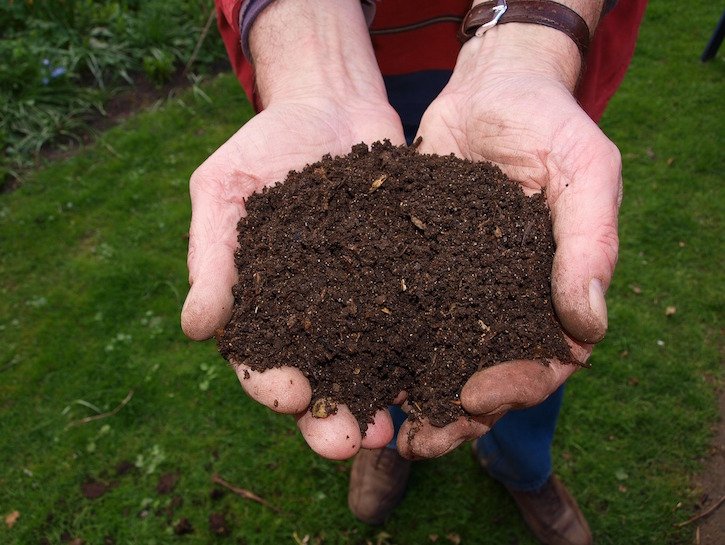Why Compost?
Whether you’re trying to save the earth or simply looking for a way to amp up your garden, composting has a ton of benefits. Composting is the practice of making organic material such as food waste into nutrient-rich compost that is then used as a soil conditioner that will improve the quality of dirt in your garden. It prevents reusable food waste from contributing to landfills and producing greenhouse gases — though this waste emits methane when buried in a landfill, no methane is produced during composting. Instead, composting produces carbon dioxide. Because of this, composting is an environmentally friendly way to get rid of your food waste and put it to good use by producing more plants.
What Is The Composting Process?
Composting’s natural biological process that requires organic matter, moisture, oxygen and bacteria. Organic matter can be anything including food waste, animal waste and plant matter — even dead twigs or branches. The moisture and oxygen work to support the break down the organic matter, which is largely caused by the bacteria present in the compost pile. Along with the bacteria, other organisms such as earthworms and insects work to break down the material into compost as well. When the pile of matter has turned into rich, dark soil, the composting process is complete.

Marina Lohrbach/Shutterstock
How To Begin Composting
You don’t need to live on a farm or have a ton of open land to be able to compost. If you have a small space in your yard, you can easily create a place for a compost pile. If you live in a more urban area, you can purchase a composting bin that will take up minimal space and keep your compost material contained during the process.
Starting A Compost Pile
If you’re planning on building your own compost pile in your yard, it’s important to first think about placement. Many of the organic materials can produce a pungent odor, so you want to place your compost downwind of your home, if possible. It’s also a good idea to try to place your pile in a shady area, as too much sun exposure can dry out your pile.
You can simply dump the materials into a heap or build a pen structure out of wood or chicken wire to contain the compost. Just add the materials together and you have the beginning stages of compost.
Using A Compost Bin
Using compost bins are simple because they work to maintain proper oxygen and moisture on their own. They also keep unwanted animals and rodents from sniffing around your compost pile. There are many different kinds of compost bins and each have their own benefits — some even have tumblers for turning the material and air vents to regulate oxygen.

Joana Stankiewicz-Witek/Shutterstock
What Should You Add To A Compost Pile?
Your compost pile should be an even mix of green materials and brown materials. Green materials include fruit skins and peels, lawn clippings and even meat products. Brown materials are things such as dried twigs, dead leaves and manure.
Common household waste products that can be composted include egg shells, coffee grounds and coffee filters, tea bags, paper napkins, newspapers and fruit, vegetable, meat and dairy waste.
Lawn waste to add to your compost pile includes grass, leaves, pine needles, twigs, sticks, weeds and hay.
Items that should never be composted are invasive weeds such as quackgrass, charcoal, human waste, pet litter, diseased plants or plants that have been treated with pesticides.

Josep Curto/Shutterstock
How Long Does Composting Take?
The amount of time it takes to fully compost organic material depends on the size of the compost pile, the type of organic matter included, how many times the pile is turned and the pile’s surface area. The process can take a few months to break down the matter and produce rich soil, so be patient.
If you’re looking to expedite the process, there are a few things you can do:
- Turning the compost material over frequently and adding soil can help speed up the composting because it supplies more oxygen and bacteria to the pile. Turning the compost also helps control the pungent odor that comes from the rotting food material. It’s recommended to turn your pile every two to four weeks.
- It’s important to keep your compost pile moist. If it’s too dry, the process will be slowed down. The compost should always have moisture similar to a wrung-out sponge. If you live in a dryer climate, regularly add water to the compost to keep it wet.
- Add more green materials than brown materials to your pile to speed the process. However, brown material is important for producing oxygen in your compost, so don’t eliminate it from your pile altogether.
If you have large organic materials, particularly pieces of meat, cut or blend them into smaller parts to help the decomposition process and make them break down faster.
